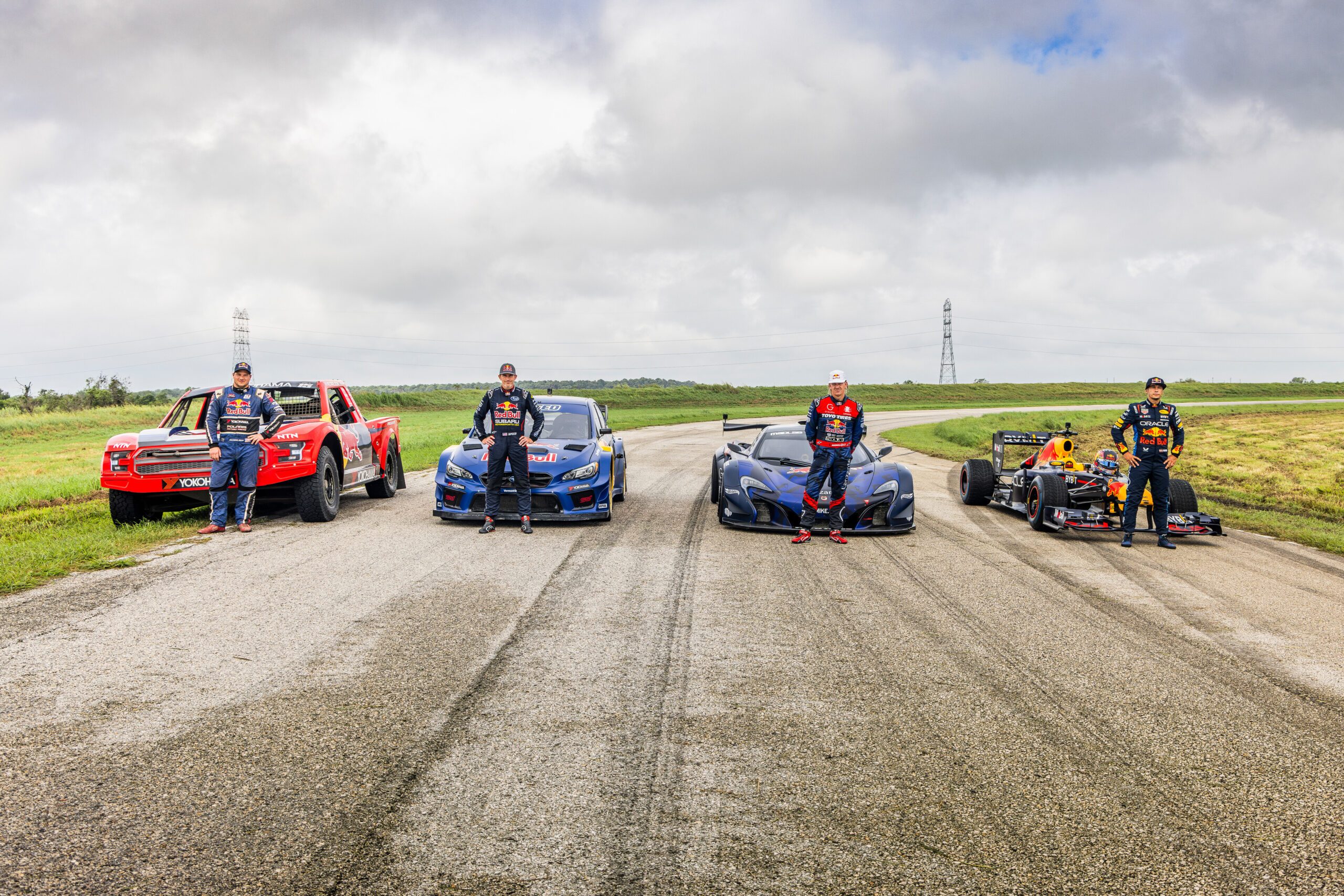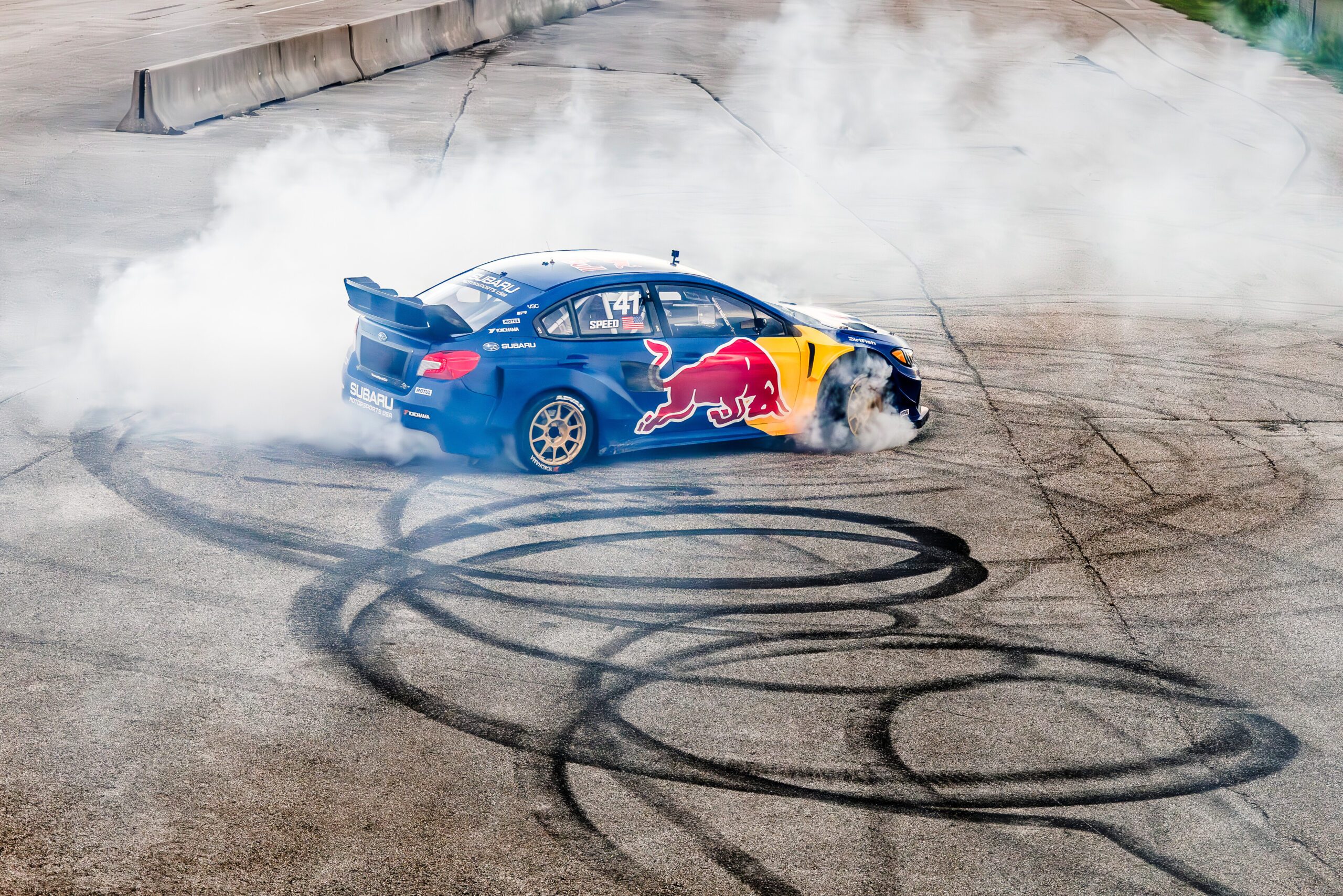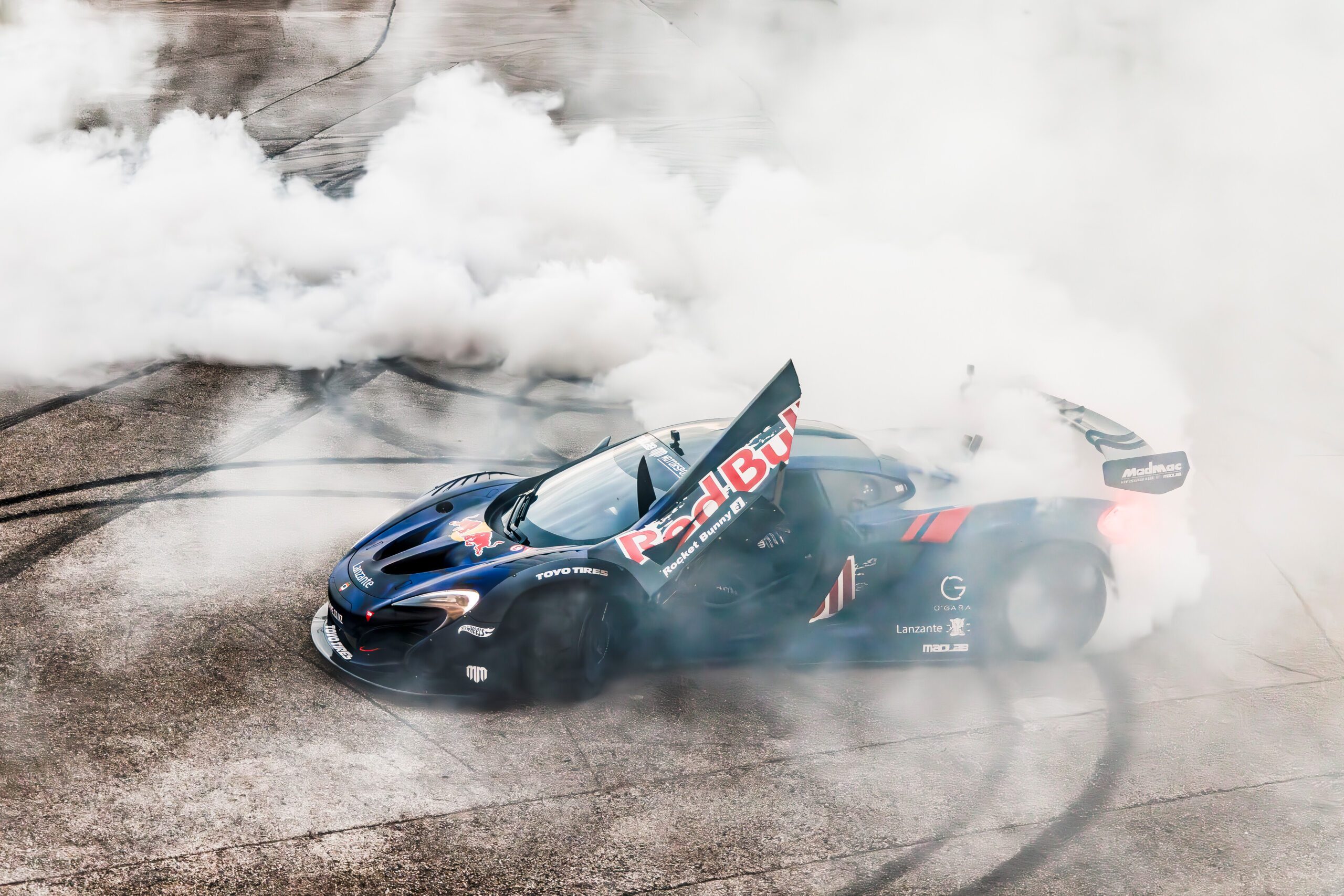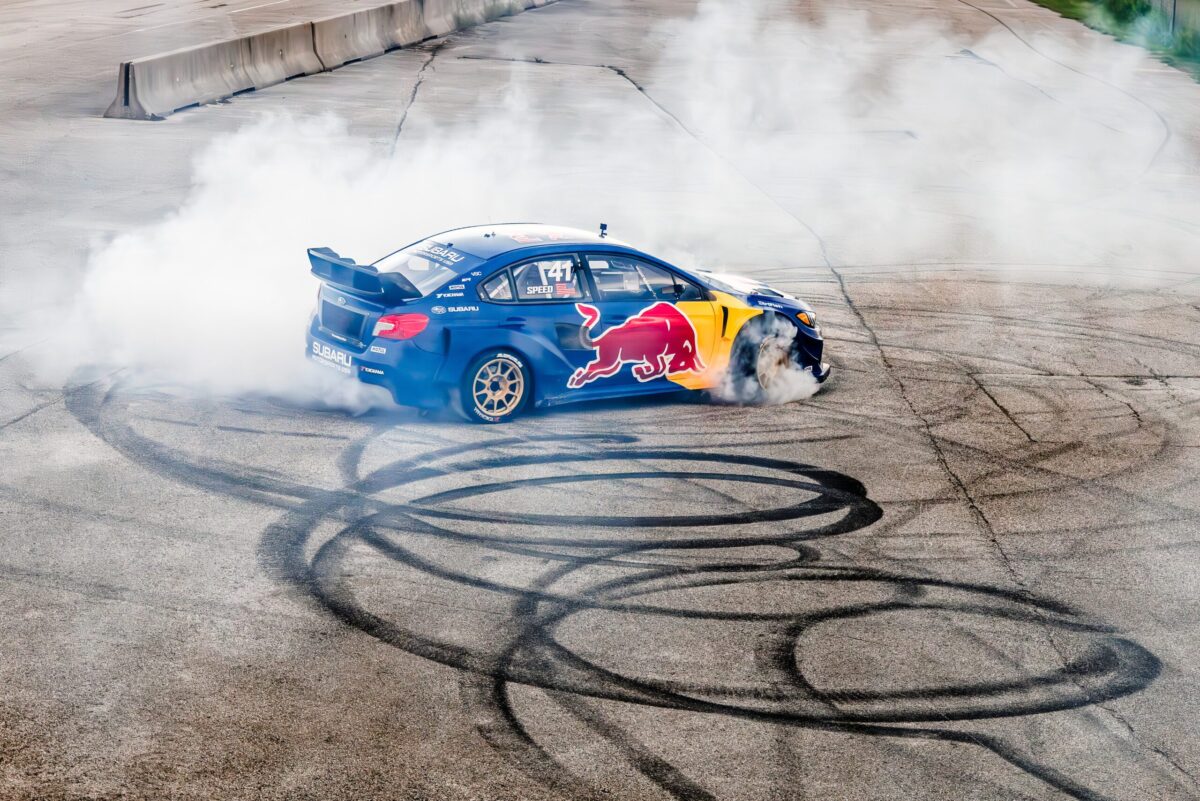F1, Rallycross, Drift, and Pro4 Vehicles Face Off on a Custom Track, Captured by Drone
All images courtesy Red Bull Content Pool, used with permission.
Red Bull recently staged an unprecedented race between four elite motorsport vehicles, each representing a unique racing discipline. The event, which took place on a custom-built hybrid track, brought together a Formula 1 car, a Rallycross car, a Drift hypercar, and a Pro4 off-road truck. The result was a high-energy, multi-terrain showdown, where drones played a critical role in capturing the thrilling action from above.


Four Competitors, One Custom Track
The race featured top-tier drivers and vehicles from a variety of motorsport backgrounds. Formula 1 veteran Patrick Friesacher took the wheel of the championship-winning RB7 Formula 1 car, known for its ability to maintain high speeds on straightaways and tarmac sections. Andrew Carlson, a seasoned off-road racer, drove his Pro4 truck, designed for handling dirt tracks and jumps with ease.
Representing Rallycross, multi-series champion Scott Speed joined the competition in his Subaru Rallycross car, engineered for rapid acceleration and tight cornering. Mad Mike Whiddett rounded out the lineup with his “MADMAC” McLaren Drift hypercar, a custom-built machine capable of incredible drifts and precision slides, boasting a 1,000-horsepower rotary engine.


The track, located just outside Houston, Texas, was specifically designed to challenge all four vehicles by including segments tailored to their individual strengths. The race blended tarmac and dirt, requiring the drivers to adapt quickly to varying conditions.
The Numbers Behind the Race
Each vehicle brought its own set of advantages to the competition. The RB7 Formula 1 car, for example, weighed in at just 1,400 pounds and packed 750 horsepower. On the other hand, the Pro4 truck was significantly heavier at 4,500 pounds, but its 950-horsepower engine and off-road suspension allowed it to dominate the dirt sections.
The Rallycross car, driven by Scott Speed, is known for its explosive acceleration. It reaches 60 mph in just 1.9 seconds—faster than an object in freefall. This unique ability gave Speed an edge when navigating the tight corners and quick transitions of the hybrid track. Meanwhile, Whiddett’s “MADMAC” Drift hypercar, with its flame-spitting rotary engine, brought 1,000 horsepower to the table, making it the most powerful vehicle in the lineup.


Qualifying Times
Before the final race, each vehicle completed a qualifying lap on the track’s individualized lines. The qualifying times were incredibly close, setting the stage for an intense final showdown. Andrew Carlson’s Pro4 truck posted a time of 1:20.23, followed closely by Friesacher’s RB7 Formula 1 car with a time of 1:20.36—just 0.13 seconds behind. Scott Speed’s Rallycross car came in third at 1:20.56, and Whiddett’s “MADMAC” finished with a time of 1:21.40.
Drones Capture the Finish
With such evenly matched vehicles, determining the winner of the final race came down to a matter of seconds. The race was fast-paced and intense, with each vehicle taking advantage of its strengths on different parts of the track. In the end, it was the drone footage that helped capture the decisive moments, giving fans a clear view of who crossed the finish line first.
To find out who won the race, check out the video embedded below. The aerial footage provides a full view of the action, allowing viewers to relive every twist, turn, and jump from the best vantage point possible.
Drones in Motorsports
Drones have become a crucial part of capturing motorsports events, offering perspectives that ground-level cameras simply can’t provide. In this case, they played a key role in ensuring fans had a clear view of the close finish and the excitement of the race. As motorsports continue to evolve, drones will likely remain an essential tool in documenting these high-speed, multi-vehicle events.
Watch the video below to see how the race played out and how drones captured the thrilling finish.
Read more:
Miriam McNabb is the Editor-in-Chief of DRONELIFE and CEO of JobForDrones, a professional drone services marketplace, and a fascinated observer of the emerging drone industry and the regulatory environment for drones. Miriam has penned over 3,000 articles focused on the commercial drone space and is an international speaker and recognized figure in the industry. Miriam has a degree from the University of Chicago and over 20 years of experience in high tech sales and marketing for new technologies.
For drone industry consulting or writing, Email Miriam.
TWITTER:@spaldingbarker
Subscribe to DroneLife here.


